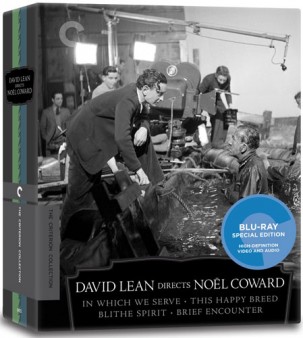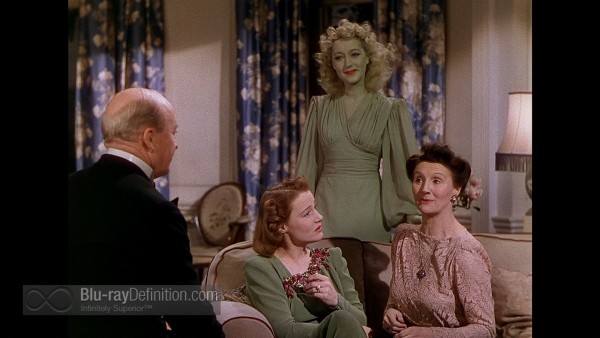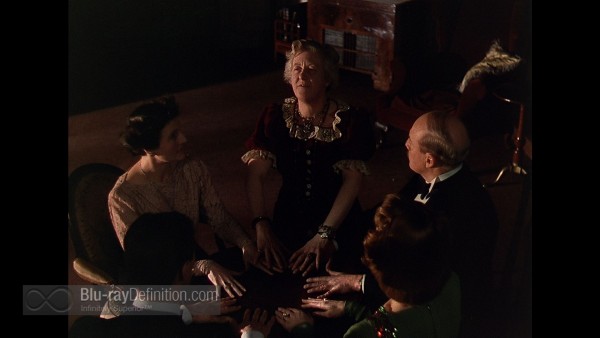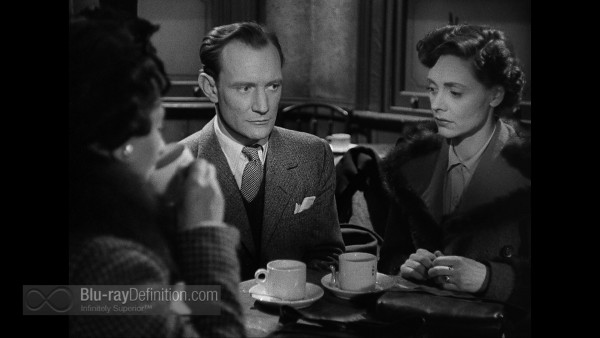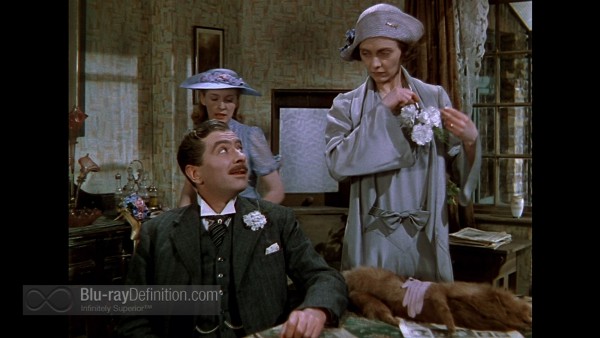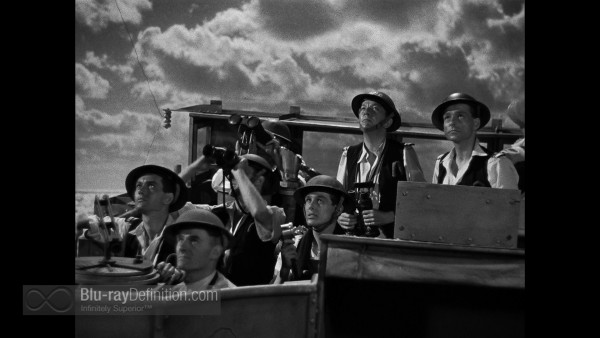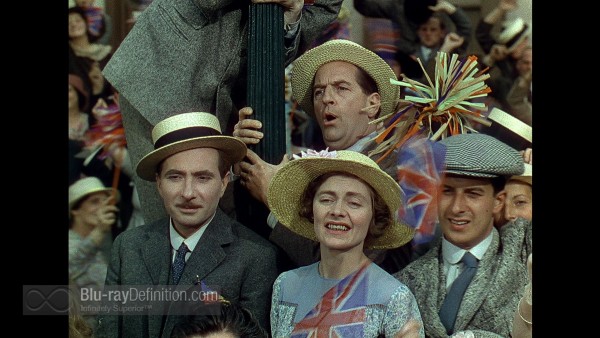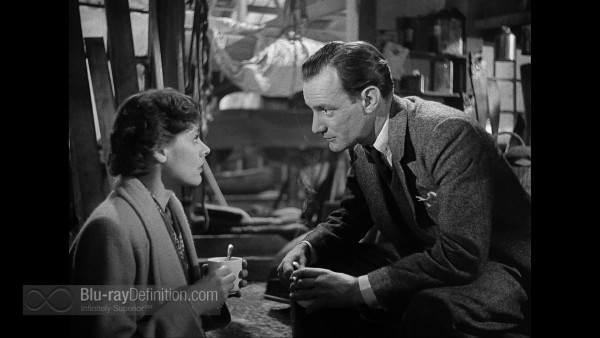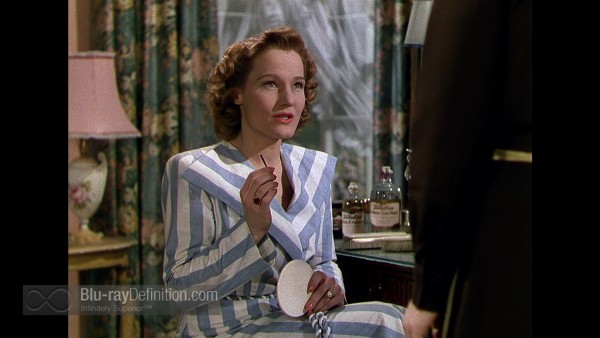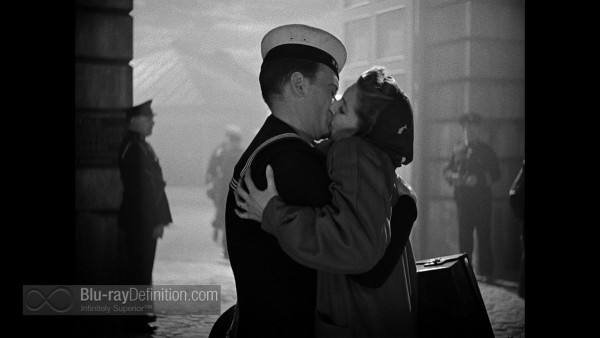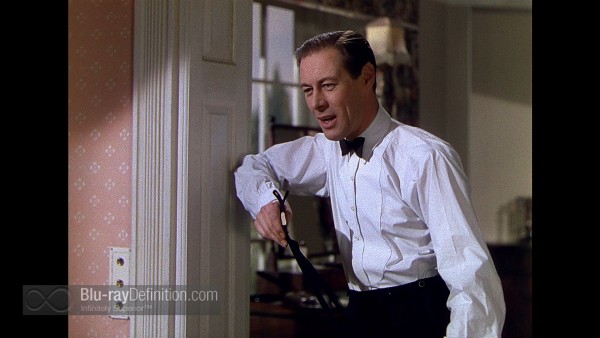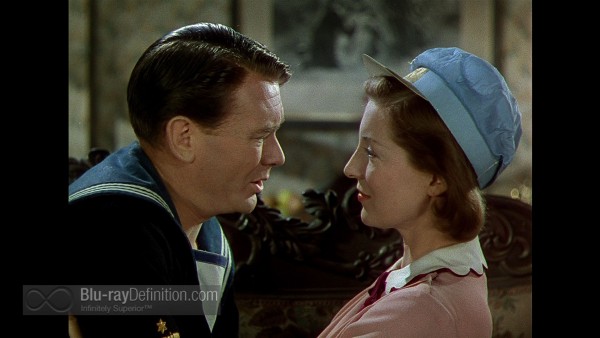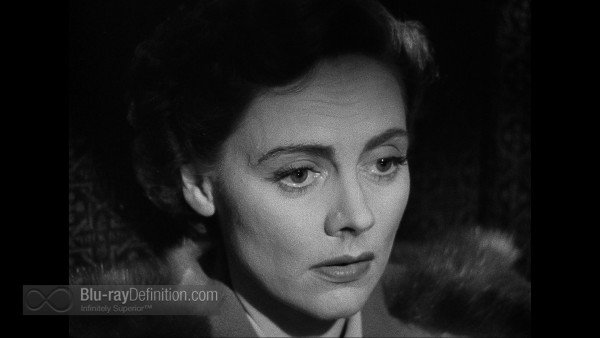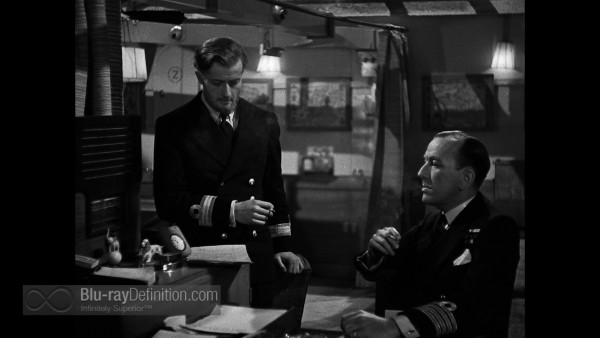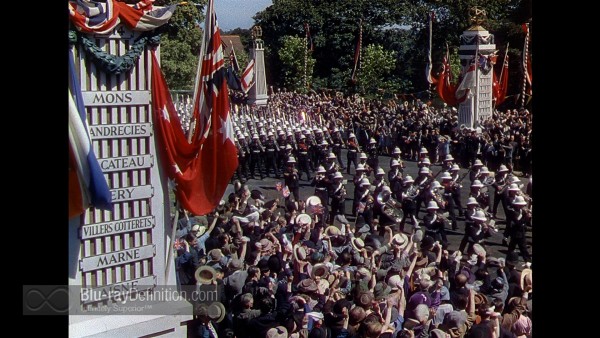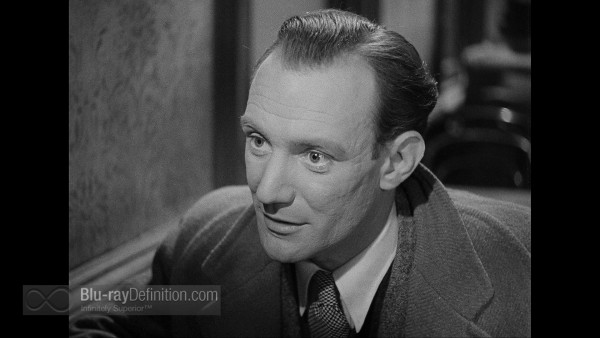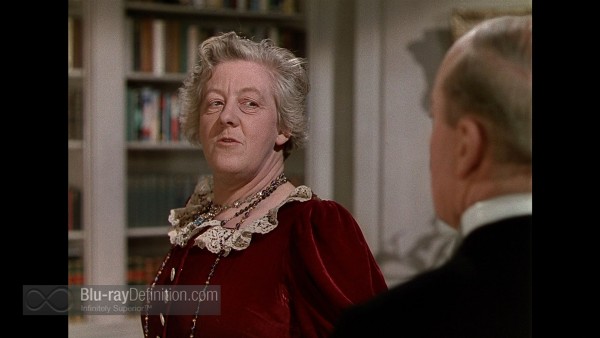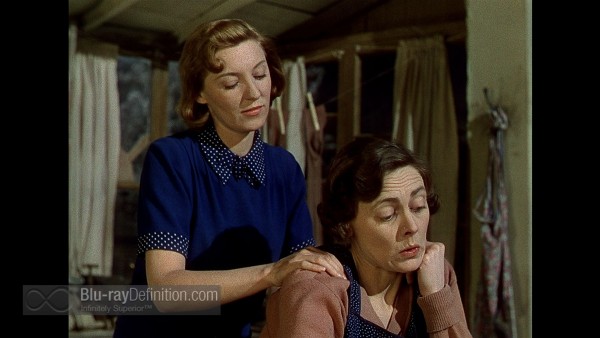- Aspect Ratio: 1.37:1
- Video Codec: AVC/MPEG-4
- Resolution: 1080p/24
- Audio Codec: LPCM 1.0 Mono
- Subtitles: English SDH
- Region: A (Region-Locked)
- Rating: Not Rated
- Discs: 4 (4 x Blu-ray)
- Studio: Criterion Collection
- Blu-ray Release Date: March 27, 2012
- List Price: $99.95
[amazon-product]B006ML50RE[/amazon-product]
Purchase David Lean Directs Noël Coward on Blu-ray at CD Universe
Shop for more Blu-ray titles at Amazon.com
Overall
[Rating:4/5]
The Film
[Rating:4/5]
Video Quality
[Rating:3.5/5]
Audio Quality
[Rating:2.5/5]
Supplemental Materials
[Rating:4/5]
Click thumbnails for high-resolution 1920X1080p screen captures
(All TheaterByte screen captures are lightly compressed with lossy JPEG at 100% quality setting and are meant as a general representation of the content. They do not fully reveal the capabilities of the Blu-ray format)
–
The Film
[Rating:4/5]
Playwright and actor Noël Coward had a storied career on stage and in film. His 1940’s collaborations with director David Lean who became best known for epic films like Bridge over the River Kwai, Doctor Zhivago, and Lawrence of Arabia, were of an entirely different nature, dealing primarily with domestic situations. The Criterion Collection David Lean directs Noel Coward presents films produced between 1942 and 1945: In Which We Serve, This Happy Breed, Blithe Spirit, and Brief Encounter. What distinguishes most of these films from many of their contemporaries is that the latter three were adaptations of Coward’s most successful theater works, making them the obvious picks of the litter. Besides the spot on direction and screenplays by Lean, these movies featured many of the top British actors of the era. We should give thanks to the Criterion Collection for their meticulous transfers of the British Film Institute’s 2008 National Archives restorations. The soundtracks are all clear monaural. Copious extras abound as will be noted later in this review.
Blithe Spirit
This, one of two color films in the lot, is best described as a “post-mortem” comedy of manners in which novelist Charles Condomine (Rex Harrison) needing material for a book, attempts to expose fake psychic Madame Arkati (Margaret Rutherford) who tries to summon back Condomine’s late wife Elvira (Kay Hammond). When Elvira does return from the dead, Condomine is the only one who can see her to the consternation of his present wife, Ruth (Constance Cummings). Elvira’s abortive effort to reunite with Charles in death inadvertently causes Ruth’s fatal auto accident. Ruth’s ghost is recalled from the beyond with help from Mme Arkati whose further efforts to return them back to the spirit world has unintended consequences for all involved.
Brief Encounter
This film noir is the recollection of a young woman, Laura Jesson, (Celia Johnson) living in a dull marriage with husband Fred (Cyril Raymond). Laura has a chance meeting with a married doctor, Alec Harvey (Trevor Howard), at a train station. They begin to meet every Thursday and exchange their personal stories. Inevitably, the couple falls in love and the affair escalates but is never consummated. As they meet for the last time at the station, the romantic farewell that Laura seeks never occurs. Throughout this picture, the strains of Rachmaninoff’s Piano Concerto No. 2, a romantic piece if there ever was one, offers sharp contrast to the lack of romance in Laura’s home life. One of the brilliant touches of this film is the counter play of the station guard (Stanley Holloway) and the manageress of the train station buffet (Joyce Carey, Mrs. Noël Coward in real life).
This Happy Breed
This early Technicolor film surveys the lives of working class British families following World War I. The cast is simply superb: Robert Newton (Frank Gibbons) best remembered as Treasure Island’s Long John Silver, Celia Johnson (Ethel Gibbons), the quintessential conflicted housewife of Brief Encounter, and Stanley Holloway (Bob Mitchell), Eliza Doolittle’s dad in My Fair Lady. This period snapshot of post-war England is deft and brilliantly scripted. It presents the changing British society during the 20 years between the great wars and conveys time and place in a convincing manner. Using the device of a family growing up and older, this film explores such diverse topics as socialism, dance crazes, and adultery.
In Which We Serve
This World War II propaganda film follows the course of a battleship HMS Torrin, after its launch under the command of Captain E.V. Kinross (Noël Coward). The story follows the course of this vessel as it engages in conflict. There is a nonlinear aspect to this film as it moves from the sinking of the Torrin to the events that preceded and followed. There is an immediacy to the cinematography that conveys the pain and suffering that was experienced during this world changing period of history. In the epilogue, there is a clear patriotic message, as Kinross puts to sea again, but this time in a mighty battleship, poised to take on the enemy.
Video Quality
[Rating:3.5/5]
There is significant variation in the visual quality of these films. The two Technicolor restorations (Blithe Spirit and This Happy Breed) are nothing short of amazing with recovery of detail and a superb color palette. The film noir pairings (In Which We Serve and Brief Encounter) are not so fortunate with obvious grain and occasional blurry imaging. One must always remember that restoration efforts depend on the original material and I am certain that, in this case, the Criterion crew were working with the best originals available.
Audio Quality
[Rating:2.5/5]
There is no mistaking the provenance of these films. The 1940’s were not the zenith of film score recording, a pity since most of the scores are extremely well done by some of the UK’s best contemporary composers. However, the soundtracks captured here do the best that they can with the material with which they were presented. The overall sonic perspective is somewhat boxy and lacking in depth. Dialogue is clear and crisp.
Supplemental Materials
[Rating:4/5]
As we have come to expect from the Criterion Collection, extras abound here.
- Interviews about each film with Noël Coward scholar Barry Day
- Interview with cinematographer-screenwriter-producer Ronald Neame
- David Lean: A Self-Portrait television documentary
- Documentaries on the making of “In Which We Serve,” and “Brief Encounter,”
- Audio recording of a 1969 conversation between actor Richard Attenborough and Noël Coward at London’s National Film Theater
- Episode of the British television series The Southbank Show
- Theatrical Trailers
For younger viewers who are less familiar with the work of playwright Coward and director Lean, these brief features are insightful and interesting in their own right.
The Definitive Word
Overall:
[Rating:4/5]
For the generation that is largely Noël Coward oblivious, this box set goes a long way to restoring the reputation of an entertainment legend. The four films collected here are quite disparate in subject matter but reflect an ensemble approach to cinematic dramaturgy, given the frequent cast crossovers. It is helpful to recall that during the war years when these movies were created, the outcome of this conflict was far from assured. Even more to the credit of Noël Coward and David Lean, the authenticity of the era is well represented. Gratitude must be extended to the Criterion Collection for recognizing these geniuses and bringing their work home to new audiences worldwide.
Additional Screen Captures
–
[amazon-product]B006ML50RE[/amazon-product]
Purchase David Lean Directs Noël Coward on Blu-ray at CD Universe
Shop for more Blu-ray titles at Amazon.com
Overall
[Rating:4/5]
The Film
[Rating:4/5]
Video Quality
[Rating:3.5/5]
Audio Quality
[Rating:2.5/5]
Supplemental Materials
[Rating:4/5]


